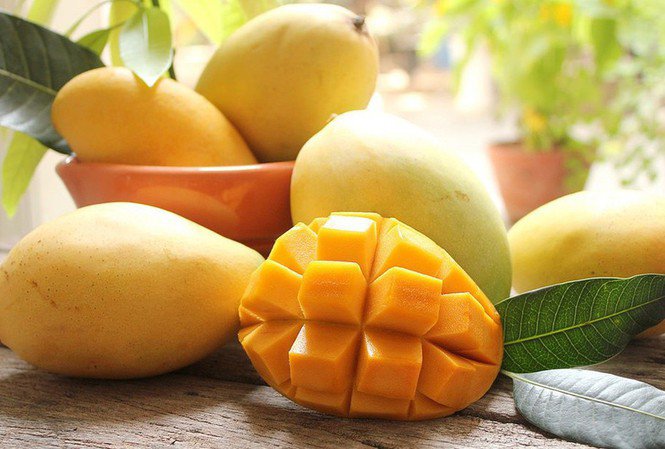
Mango and Diabetes
1. Mango is a fruit rich in nutrients
Mangoes are rich in essential vitamins and minerals, making them a nutritious addition to almost any diet - including those for people with diabetes.
A 165g serving of chopped mango provides:
Calories: 99 Protein: 1.4g Fat: 0.6g Starch: 25g Sugar: 22.5g Fiber: 2.6g Vitamin C: 67% of the Daily Value (DV) DV) Copper: 20% DV Folate: 18% DV Vitamin A: 10% DV Vitamin E: 10% DV Potassium: 6% DV This fruit is also a rich source of minerals, including magnesium, calcium, and phosphorus, iron and zinc.
More than 90% of the calories in mango come from starchy sugars, which is why it is thought to be able to contribute to high blood sugar in people with diabetes. However, this fruit also contains a large amount of fibre and antioxidants, both of which play a role in minimizing the impact of the starch in the mango on blood sugar.
While fibre slows down the rate at which sugar is absorbed into the bloodstream, the antioxidants present in mango help prevent harmful symptoms associated with a spike in blood sugar.
The glycemic index (GI) is a tool used to rank foods based on their impact on blood sugar. On a scale of 0 to 100. A score of 0 represents food that has no effect on blood sugar, whereas 100 represents a spike in blood sugar that corresponds to eating sugar directly.
Any food with a GI below 55 is considered low and may be a good choice for people with diabetes. The GI in mango is 51, so mango is in the group of foods that are safe for people with diabetes.
3. How to use mango for diabetics
3.2 Add Protein Like fibre, protein can help minimize blood sugar spikes when eaten with starchy foods like mangoes. Mangoes are a rich source of fibre but low in protein.
Therefore, adding protein sources such as boiled eggs, cheese or nuts along with mangoes reduces the possibility of blood sugar imbalance in the body of diabetic patients.







